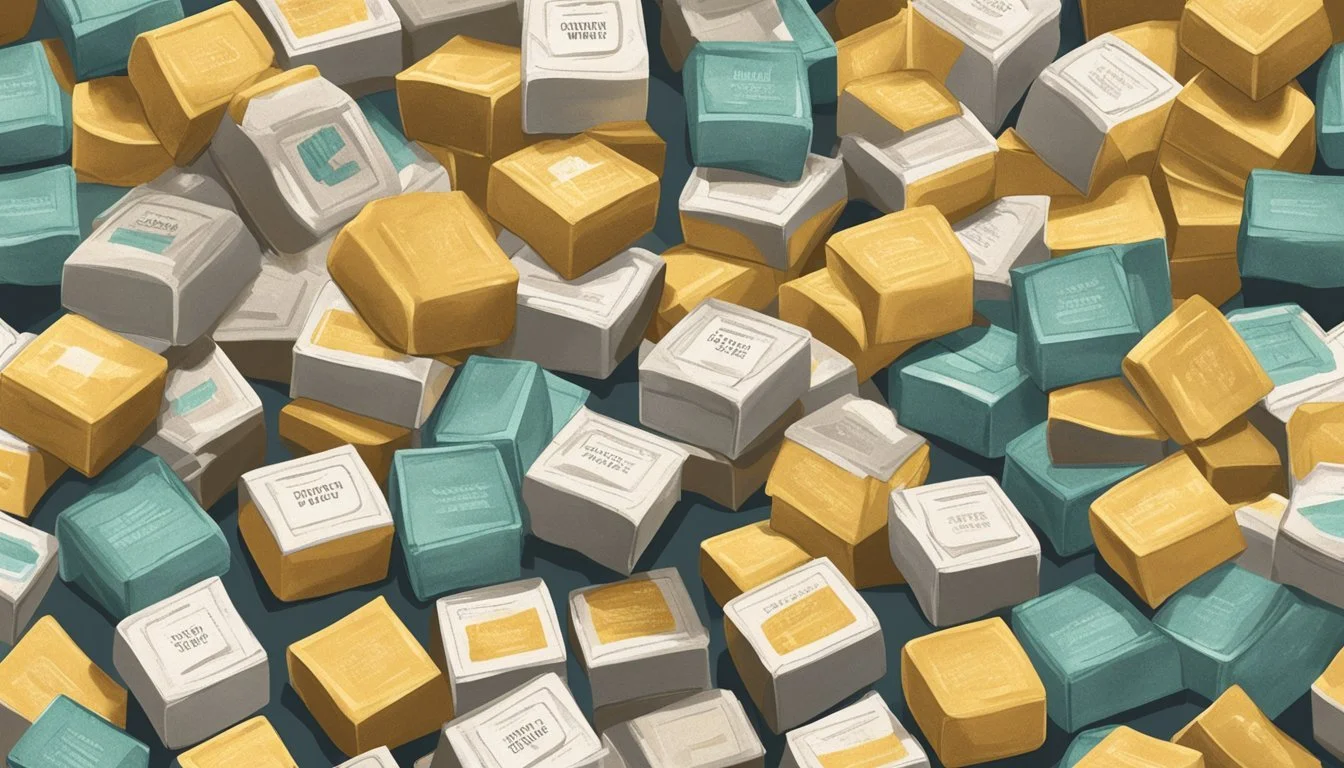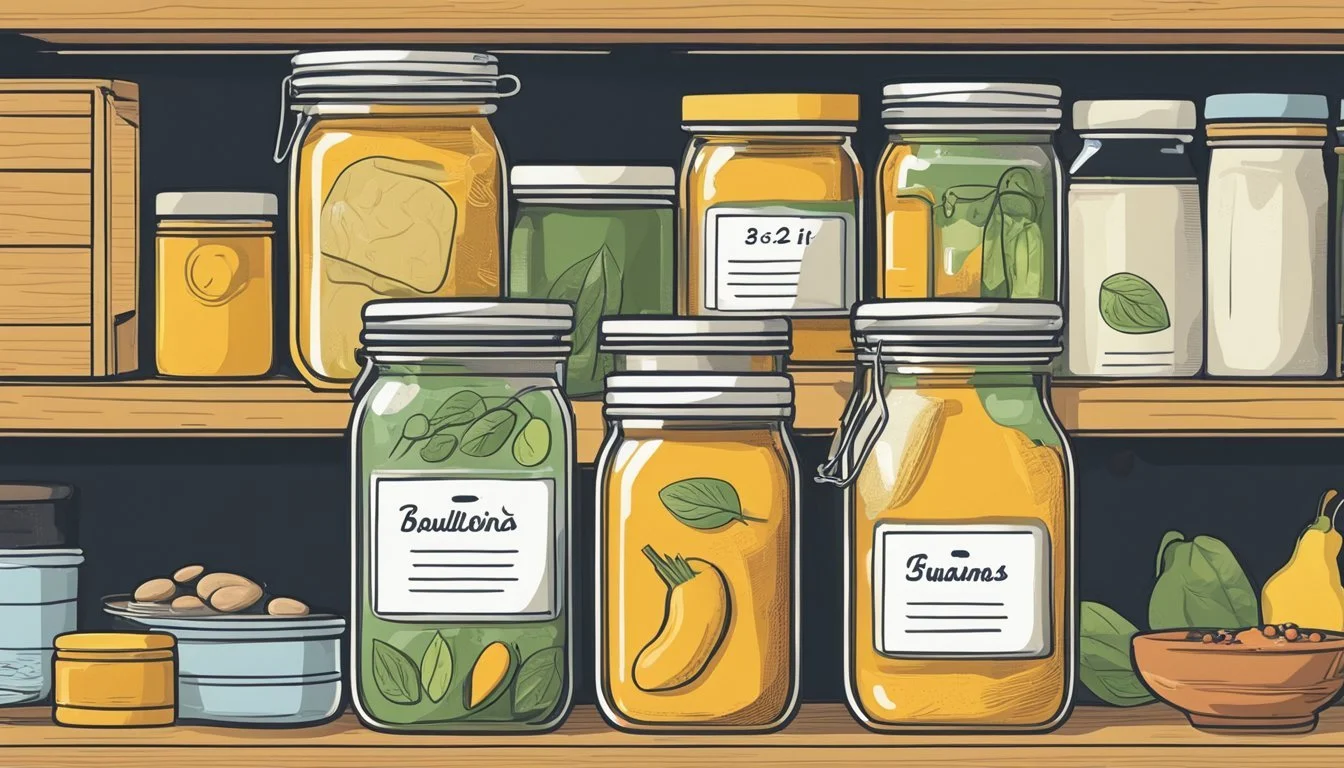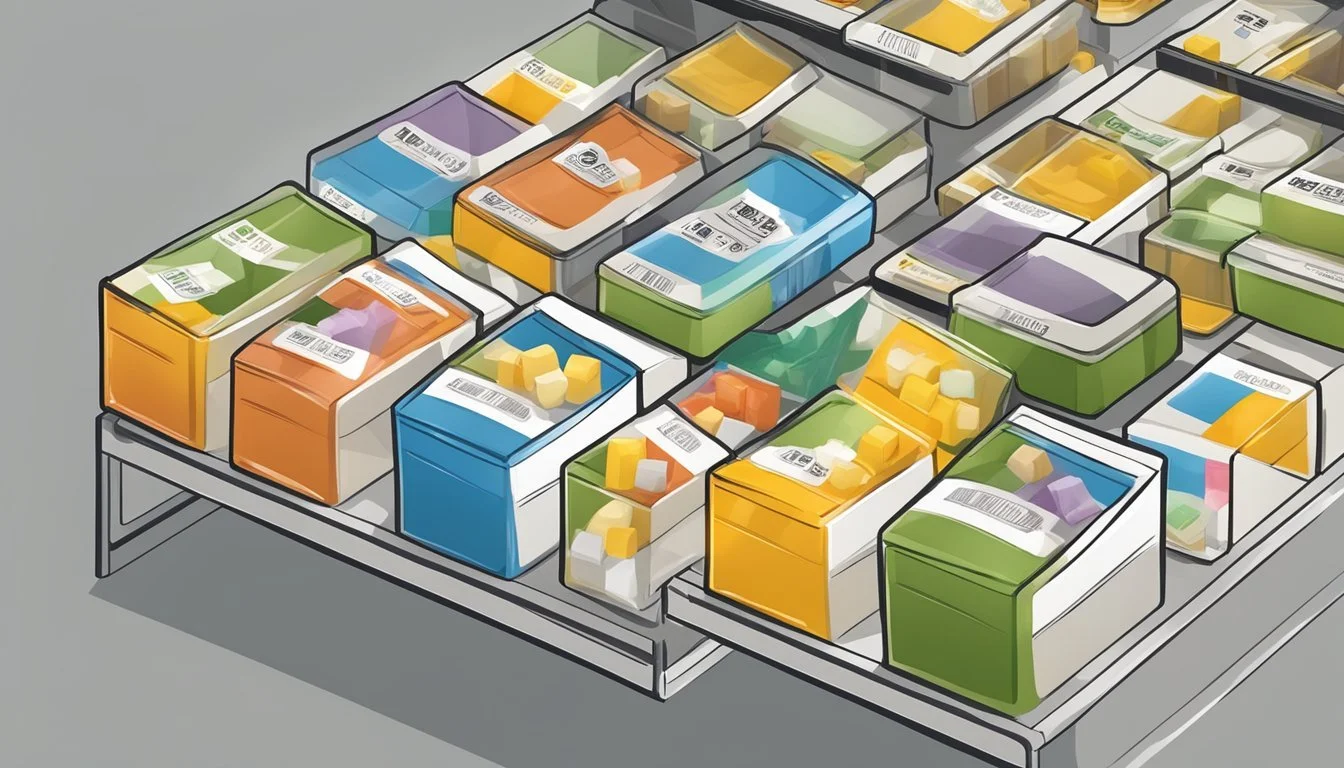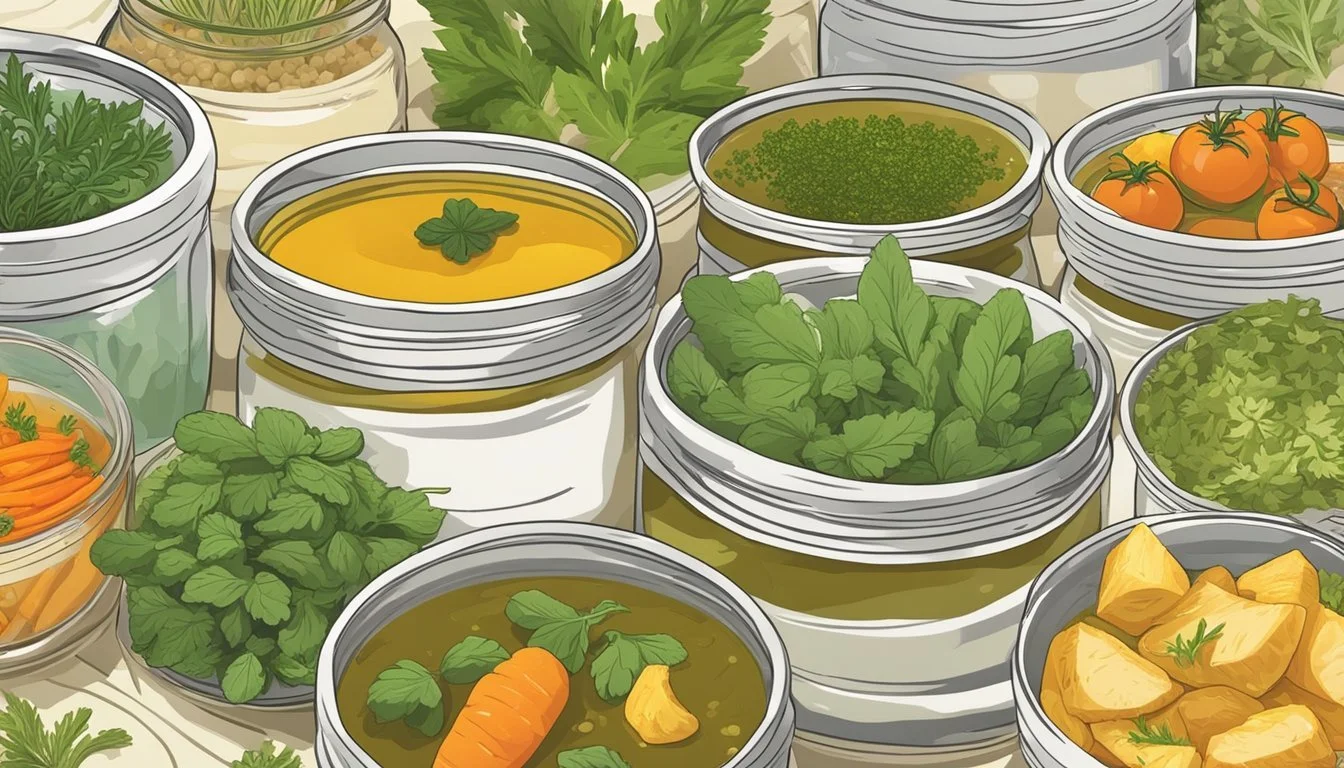Do Bouillon Cubes Go Bad?
Shelf Life and Storage Tips
Bouillon cubes are a pantry staple for many households, providing a convenient way to add flavor to soups, stews, and a variety of dishes. While these cubes are known for their long shelf life, they do go bad eventually. Over time, the flavor of bouillon cubes can degrade, making them less effective in lending rich taste to your meals.
Most bouillon cubes can last for several years if stored properly in a cool, dry place. However, even past their expiration date, they often remain safe to consume, though with diminished flavor. The key to extending their shelf life is proper storage, keeping them away from moisture and heat.
For anyone relying on bouillon cubes for quick meal preparations, it’s important to know when they’ve passed their prime. If the cubes lose their potency, consider using an extra cube or two to achieve the desired level of flavor. This simple adjustment can ensure your meals remain delicious and satisfying.
Understanding Bouillon Cubes
Bouillon cubes are a staple in many kitchens, offering convenience and a burst of flavor to various dishes. They come in different types and are composed of specific ingredients, each serving distinct culinary purposes.
Composition and Types
Bouillon cubes typically consist of dehydrated meat stock or vegetable base combined with salt, spices, and other flavor enhancers. These cubes may also contain preservatives to extend shelf life. Common types of bouillon cubes include chicken, beef, vegetable, and fish.
Chicken and beef bouillon cubes are the most popular, ideal for adding depth to soups, stews, and sauces. Vegetable bouillon cubes cater to those seeking a plant-based alternative, while fish bouillon cubes are used in seafood dishes.
Uses in Cooking
Bouillon cubes are incredibly versatile in the kitchen. They can be dissolved in hot water to create a quick broth or stock. This broth can be the base for soups, sauces, and stews.
In addition to liquid dishes, cooks often crumble bouillon cubes directly into recipes to enhance flavor. For example, adding a beef bouillon cube to a stew can enrich the overall taste. Chicken bouillon cubes work well in a variety of dishes, including casseroles and rice dishes, providing a savory element without lengthy preparation.
Using bouillon cubes efficiently can elevate everyday cooking, making them a valuable addition to any pantry.
Shelf Life and Expiration
Bouillon cubes have a long shelf life due to preservatives and high sodium content. They can be safe to consume for years if stored properly, although their flavor may decline over time.
Determining Shelf Life
Bouillon cubes typically have a shelf life ranging from 1 to 2 years. This longevity is largely thanks to their preservatives and the dehydrated state of the ingredients.
Proper storage is crucial for maximizing shelf life. Keep bouillon cubes in a cool, dry place away from direct sunlight and heat. Sealed packaging helps maintain their quality for a longer period.
Reading Expiration Dates
Bouillon cubes come with expiration dates printed on their packaging. These dates indicate the time frame in which the product remains at peak quality.
While bouillon cubes may remain safe to consume past the expiration date, it's essential to check for signs of spoilage. Discard cubes that have changes in color, a foul odor, or a soft, crumbly texture. Proper storage extends the usability of bouillon cubes even beyond the expiration date.
Storage Recommendations
Bouillon cubes require proper storage to maintain their flavor and quality.
For optimal preservation, store them in a cool, dry place. A kitchen pantry is ideal. Ensure they are kept away from direct sunlight and heat sources.
Using an airtight container provides additional protection. This helps keep moisture and air from deteriorating the cubes.
Refrigeration isn't necessary but can extend their shelf life slightly. While not typical, storing bouillon cubes in the freezer can also work. Just ensure they are in a vacuum-sealed bag or an airtight container to prevent freezer burn.
Here's a quick storage guide:
Storage Method Expected Shelf Life Pantry (cool, dry) 1-2 years past expiration date Airtight Container Potentially longer Freezer (airtight) Possibly up to 4 years
By following these storage tips, bouillon cubes can retain their flavor and quality for an extended period.
Signs of Spoilage
Detecting spoilage in bouillon cubes involves observing visual and textural changes as well as alterations in scent and taste. These indicators help ensure the product is safe to use and maintains its quality.
Visual and Textural Changes
Bouillon cubes may exhibit visible changes that indicate spoilage. Mold growth is a clear sign that the cubes are no longer safe to consume. They might also show changes in color, such as turning darker or appearing discolored compared to their original state.
Additionally, the texture of bouillon cubes plays a crucial role in identifying spoilage. Fresh cubes should be firm and slightly crumbly. If they become unusually soft, damp, or mushy, it's a sign that they've been exposed to moisture and could be spoiling.
Changes in Scent and Taste
The scent of bouillon cubes can change significantly if they are spoiling. A fresh bouillon cube should have a strong, savory aroma. If the scent becomes off or gives off an unpleasant odor, it's likely that spoilage has occurred.
Taste is another key indicator. While stored properly, bouillon should maintain a rich, savory flavor. A loss of flavor or a noticeable change in taste suggests that the cubes are no longer at their best quality. When either the scent or taste is questionable, it's safer to discard the bouillon cube.
Safety and Consumption
Bouillon cubes can have a long shelf life, but their safety and edibility may degrade over time. Identifying spoilage and understanding the risks involved in consuming expired cubes is essential.
Evaluating Edibility
Proper storage is key to keeping bouillon cubes safe to consume. They should be stored in a cool, dry place away from direct sunlight and heat sources. Check for signs of spoilage, such as:
Changes in color
Foul odors
Soft or crumbly texture
Mold growth
If bouillon cubes exhibit any of these signs, they are likely spoiled and should be discarded. The high salt content in bouillon cubes helps preserve them, but it does not make them immune to spoilage.
Risks of Consuming Spoiled Cubes
Consuming spoiled bouillon cubes can pose health risks. Spoiled cubes may harbor bacteria and mold, which can lead to foodborne illnesses. Symptoms of foodborne illness include:
Nausea
Vomiting
Diarrhea
Abdominal cramps
To avoid these risks, always check bouillon cubes for spoilage before use. Even if they appear safe, if they have been stored improperly or beyond their best by date, it's safer to err on the side of caution and discard them.
Maintaining Quality Over Time
Bouillon cubes can retain their flavor and safety for extended periods if properly stored. Key factors include avoiding moisture and heat, as well as ensuring airtight sealing to prevent exposure to air and humidity.
Preventing Moisture and Heat Exposure
Storage conditions significantly affect the quality of bouillon cubes. Moisture can cause the cubes to become soft and crumble, while excess heat can break down their components, ruining their flavor.
For optimal preservation, always store bouillon cubes in a cool, dry place. Avoid areas near heat sources such as stoves or ovens, as well as places exposed to direct sunlight. A consistent temperature helps maintain freshness and prevents the cubes from deteriorating prematurely.
Proper Sealing Techniques
Proper sealing is crucial to prevent moisture absorption and exposure to air, which can weaken the quality of bouillon cubes. It is best to store them in an airtight container to block out humidity and other environmental factors.
When using bouillon cubes, ensure the packaging is tightly sealed after each use. If the original packaging is not resealable, transfer the cubes to a tightly sealed container. This practice helps to keep the cubes fresh and extends their shelf life by minimizing contact with air and humidity.
Homemade Bouillon Alternatives
Making homemade bouillon cubes offers control over ingredients and eliminates preservatives found in commercial options. Freshness can be maintained by storing them properly, ensuring a flavorful addition to recipes.
Creating Homemade Bouillon Cubes
Homemade bouillon cubes can be made from scratch using either meat or vegetables. Start by simmering your choice of ingredients—such as chicken, beef, or a mix of vegetables—with water, until a concentrated broth forms. Typical ingredients include carrots, celery, onions, and fresh herbs like rosemary and thyme.
Once the broth is sufficiently reduced, strain the liquid to remove solids and pour it into ice cube trays. Freeze until solid. Store the cubes in a freezer bag or airtight container for up to three months. This method retains the natural flavor and avoids added preservatives.
Comparison with Commercial Cubes
Unlike commercial bouillon cubes, which often contain sodium, artificial additives, and preservatives, homemade bouillon cubes are a healthier choice. Fresh ingredients in homemade bouillon ensure a richer taste and nutrient density. While commercial options offer convenience, the trade-off is usually flavor and nutritional value.
Homemade cubes can also be customized. For instance, vegetarian versions can be crafted using vegetables and herbs, while meat-based versions can be tailored to specific recipes. This flexibility makes homemade bouillon a versatile ingredient that enhances dishes without the drawbacks of mass-produced alternatives.
In powdered form, homemade bouillon can also be achieved by drying and grinding the concentrated broth, providing an easy-to-store alternative for liquid bouillon.








